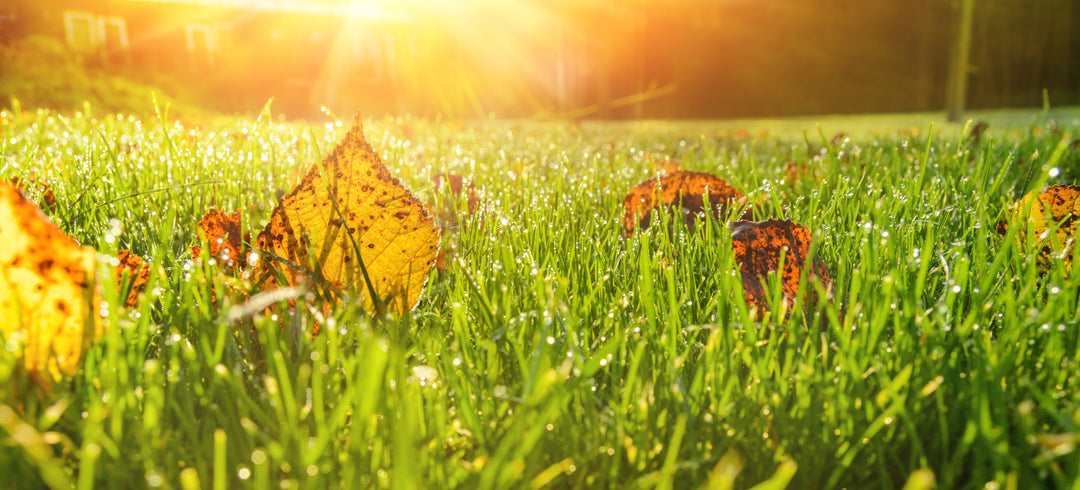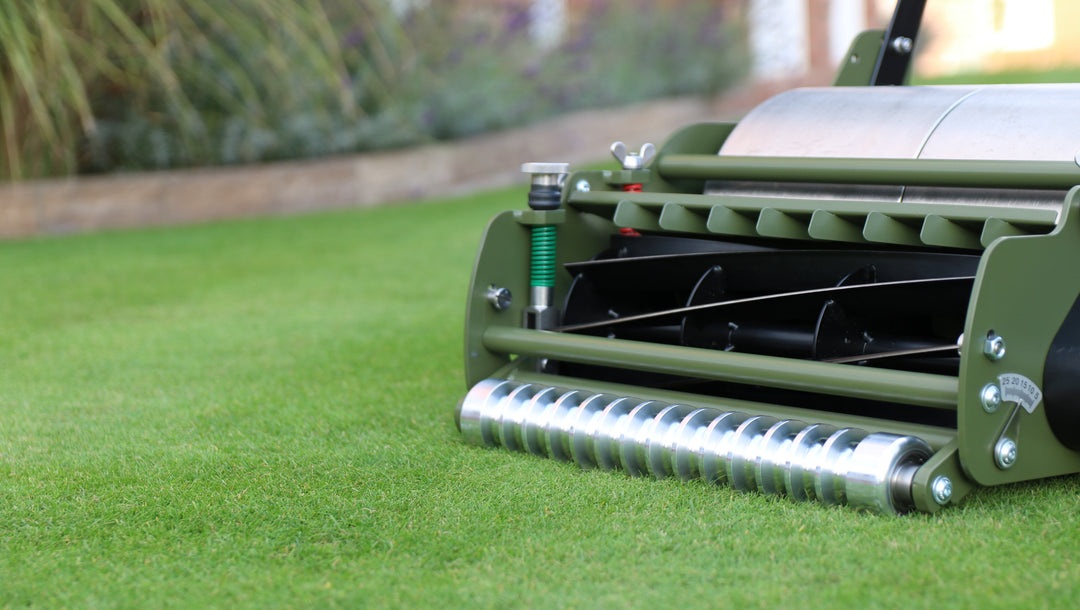Fertilize the lawn environmentally friendly
The lawn requires certain nutrients in certain amounts to grow healthy and vigorously. These include nitrogen, magnesium, potassium and phosphorus - in the form of art fertilizer, they can be used as a soluble salts that can be recorded directly. However, this isolated deployment of nutrients leads peu à peu for starvation of important flooring because organic material is completely missing. Missing humus gradually turns the ground and to infertile. In addition, artificial fertilizer consists of finite resources. The production of fertilizers is also associated with high energy expenditure and thus anything but environmentally friendly.
Artificial fertilizer: over fertilization threatens
Fertile with synthetic fertilizer quickly leads to over-fertilization. The cells of the lawn plants grow much too fast illness and weak. Fertilizer surpluses increase the nitrate load of groundwater, a certain proportion escapes as a particularly climate-damaging laugh gas.
Mild organic fertilizers add sustainable to the natural material cycle. Because they must first mineralized to be plantizable: so "feed", for example, root and plant residues, crap and compost the valuable flooring. Rainworms, spring tails and horn mites crush the organic material and distribute it in the ground. Microorganisms, fungi and bacteria can thereby continuously reduce nutrients, decompose and provide for the sustainable nutrition of the lawn.
Also, to use natural fertilizers needed as needed is crucial. A crucial meaning has the right time for fertilization: large-scale access takes place immediately before the planned sowing on the precultured floor. On the basis of three and ten centimeters thick, fertile layer of humus and organic fertilizer, the grass seed is then directly applied, rolled and watered.
Then the lawn grows healthy and lush, without burdening the environment. He usually benefits about the whole garden year from the gradual delivery of nutrients from the organic fertilizer depot - and cheaper is organic fertilizer.
Environmentally friendly, sustainable, effective
Expensive art fertilizer from the hardware store or gardening is unnecessary for a healthy lawn. Biological fertilizers are easily available or even uncomplicated themselves.
● GRÜNGER
The use of green floads proves itself especially on surfaces that were broke before. The plant residues used to the ground gradually lead to nitrogen. This leads to the ground that the soil becomes looser and receptive for water, the humus is enriched and any soil erosions is prevented.
● Compost
Nothing easier than that: A small horticulture for a separate compost heap is enough and the biotonne is superfluous. On the pile landing green section, garden and kitchen waste and other biowaste. Whether as a simple, open pile or as a quick composter, here is outstanding, environmentally friendly biod fertilizer. This contains all plant nutrients. He will optimize the soil structure and provide good ventilation - and if it rains, the good nutrients will not be washed out.
Lawn goes together with the flowerbeds as a so-called weaker: This is how 1 - 2 kg compost / m² as optimal fertilizer quantity apply.
● mulch
Grass cut is nutrient-rich mulch, which is always in mowing. Thus, the soil receives humus and nutrients, and Mulch protects against rain and wind as well as before drying.
● crap
Cots or horse is particularly nutritious organic fertilizers. He is introduced before the new system of a lawn.
● Jauche
In addition to Jauche from Animal Harns, nutritious young people can be produced by plant residues themselves, which are also less stinking: plant parts, preferably of nitrogen-rich nitrogenes, crushes and put them with water in a closable container. After about three weeks of fermentation time, the youch approach can be used in a 1: 10 dilution with watering water. By the way, he also protects against different pests.
● Horn
Whether horn chips or hornmeal, both types are made from the horn of cattle. At the same time, the chips decline slowly, they act longer-term as a powdered horn.
Horn applies to its significant nitrogen parts because of the best organic fertilizers.
● algae juice
Who has the logistical possibilities, uses the particularly high nutrient content of the organic algae material after it was comminuted, stored for about 14 days and then finally pressed. The juice belongs like youche from plant residues into the watering water and ensures a healthy natural supply of nutrients with nutrients.
● Organic full fertilizer
As mixtures of different organic raw materials, organic full fertilizers have sustainable and long-term effects. The products available in the specialized trade are particularly suitable for the exit in the autumn time - but there is a risk of overdovers. We can especially recommend the organic fertilizers of Oscorna.
Contribution: Exquisine - Stock.adobe.com




